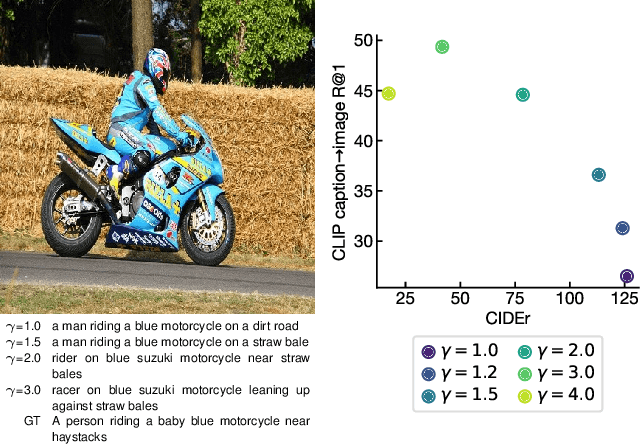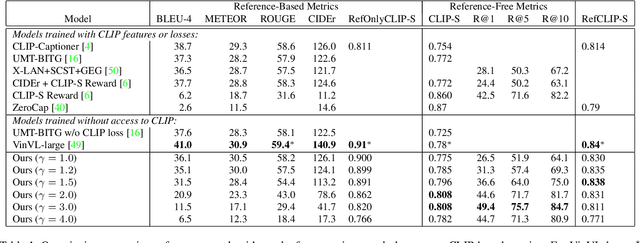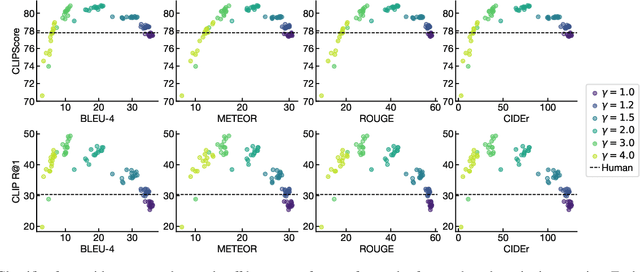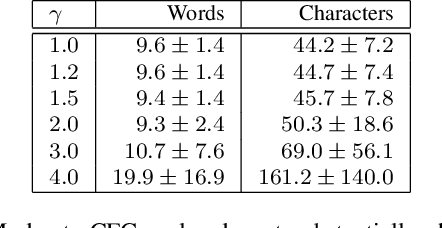Guiding Image Captioning Models Toward More Specific Captions
Paper and Code
Jul 31, 2023



Image captioning is conventionally formulated as the task of generating captions for images that match the distribution of reference image-caption pairs. However, reference captions in standard captioning datasets are short and may not uniquely identify the images they describe. These problems are further exacerbated when models are trained directly on image-alt text pairs collected from the internet. In this work, we show that it is possible to generate more specific captions with minimal changes to the training process. We implement classifier-free guidance for an autoregressive captioning model by fine-tuning it to estimate both conditional and unconditional distributions over captions. The guidance scale applied at decoding controls a trade-off between maximizing $p(\mathrm{caption}|\mathrm{image})$ and $p(\mathrm{image}|\mathrm{caption})$. Compared to standard greedy decoding, decoding with a guidance scale of 2 substantially improves reference-free metrics such as CLIPScore (0.808 vs. 0.775) and caption$\to$image retrieval performance in the CLIP embedding space (recall@1 44.6% vs. 26.5%), but worsens standard reference-based captioning metrics (e.g., CIDEr 78.6 vs 126.1). We further explore the use of language models to guide the decoding process, obtaining small improvements over the Pareto frontier of reference-free vs. reference-based captioning metrics that arises from classifier-free guidance, and substantially improving the quality of captions generated from a model trained only on minimally curated web data.
 Add to Chrome
Add to Chrome Add to Firefox
Add to Firefox Add to Edge
Add to Edge